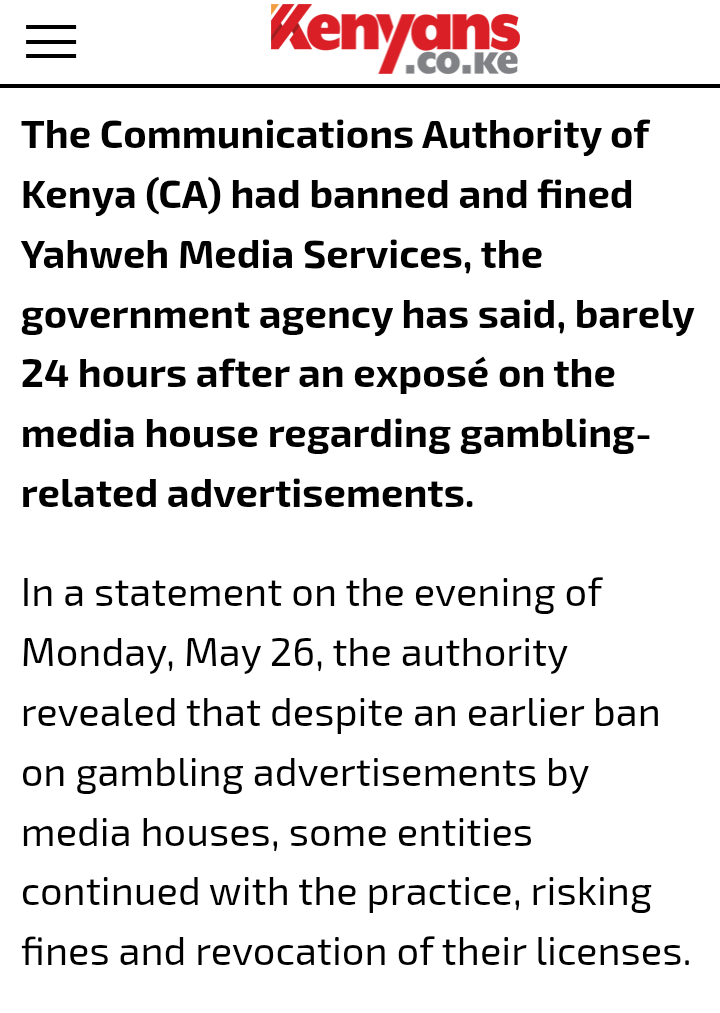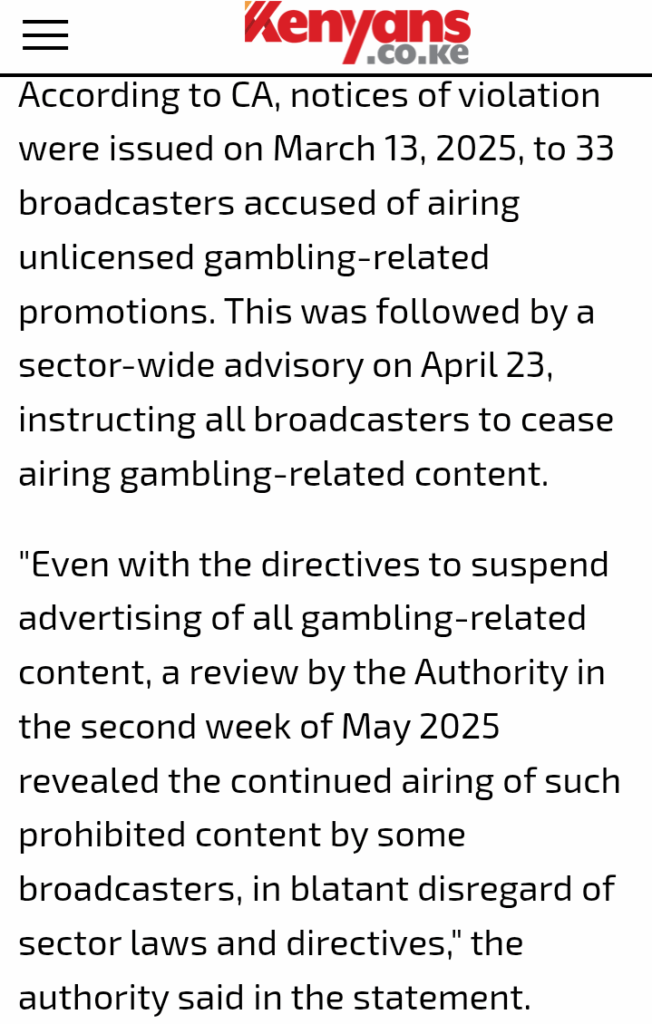The Communications Authority of Kenya has banned and fined Yahweh Media Services just a day after a major exposé revealed how the station had been airing gambling-related advertisements. The exposé raised concerns about how gospel media platforms were being used to trick viewers through hidden betting messages disguised as spiritual content.
On the evening of Monday, May 26, the Authority confirmed that Yahweh Media Services was one of several media houses defying a ban on gambling advertisements. The CA explained that it had already warned broadcasters before, but some continued with the practice, risking heavy penalties and even loss of licenses.

Back on March 13, 2025, the Authority issued notices to 33 broadcasters for promoting unlicensed gambling activities. Later, on April 23, a sector-wide advisory was sent out demanding that all broadcasters stop airing gambling content immediately.
However, a review by the Authority during the second week of May found that some broadcasters were still airing this prohibited content. The CA said this showed a blatant disregard of the law and official directives, making it necessary to take firm action.
Yahweh Media Services was among those penalized for ignoring the rules. The Authority fined the station Ksh500,000 and extended the same penalty to eight other broadcasters who were also found guilty of airing gambling adverts.
They were all given a strict 12-hour deadline to stop broadcasting the non-compliant content or face harsher actions, including possible revocation of their licenses. The CA referenced Section 83A of the Kenya Information and Communications Act, 1998, to justify the penalties and ultimatum issued.
The decision by the CA followed an investigative report by NTV called Sacred Swindle: Inside the Gospel of Greed on Kenya’s Airwaves. The report showed how certain religious broadcasters were mixing gospel messages with gambling advertisements in a bid to make money from unsuspecting viewers.

One pastor interviewed in the exposé admitted that the station could earn up to Ksh700,000 in a day just from Kenyans playing raffle games believing they could win money. This raised serious questions about the intentions behind such religious programming.The exposé further claimed that some televangelists use people’s faith as a tool to solicit money under the disguise of miracles or divine blessings.
These programmes often promise quick financial breakthroughs to vulnerable audiences but secretly include gambling promotions. The growing concern is that many Kenyans may not even be aware that they are engaging in gambling, as the ads are cleverly blended with religious messages. This has led to renewed calls for tighter regulations and more accountability in the media space to protect viewers from manipulation and exploitation.


